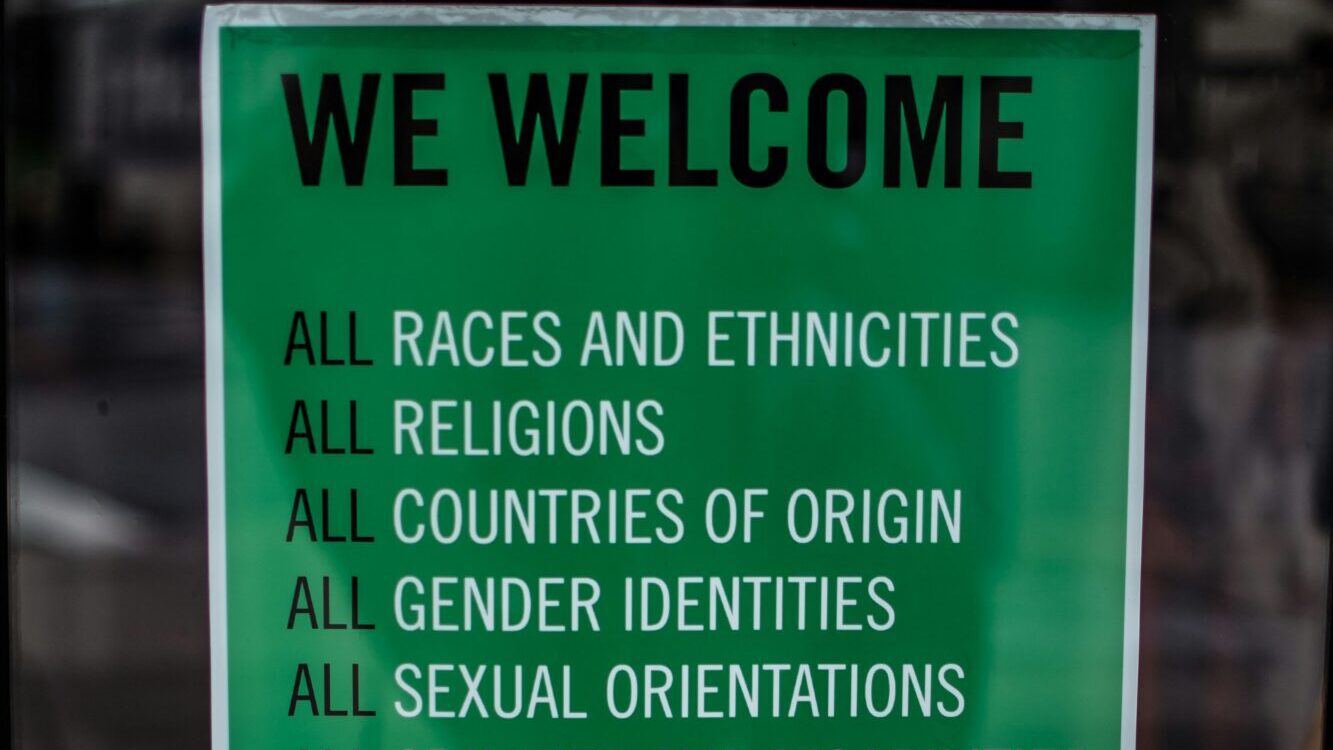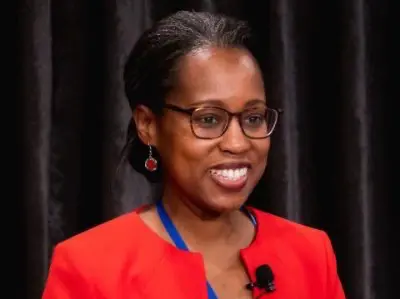
Photo by Brittani Burns on Unsplash

Wanjiru Njoya is a former Rhodes Scholar from Kenya and has a Ph.D. in law from the University of Cambridge (St. Edmunds, 1998). She is the co-author with David Gordon of Redressing Historical Injustice: Self-Ownership, Property Rights and Economic Equality (Palgrave Macmillan, 2023).
There is reason to be optimistic, in that more people are now aware of the threat, but those who say that we’re witnessing the end, or even the beginning of the end, are wrong. DEI is still mandatory in many universities and corporations, with no sign of abating. On the contrary, some CEOs have reported that they’re stepping up their DEI efforts.
These types of ‘clever’ uses of wokery can indeed bring it into disrepute and cause many of its supporters to realise that it’s ridiculous. A similar example would be the people who are ‘weaponising’ Scotland’s new hate speech law by flooding the police with reports of hate. However, I would caution that those behind wokery are extremely focused and determined, and they will not stand down just because people are laughing at them. Their methods work in attaining power, and they won’t give up the chance to have even more power simply for fear of being laughed at.
There is no logical end to it. Every day, new oppressed groups emerge. Now we have people who claim to identify as a different age, people who claim that their sexual orientation is towards trees and plants, all manner of new groups that claim to be vulnerable and marginalised. As long as social and political power is derived from being marginalised, new groups will constantly emerge, each with more power than the previous group.
No, everybody knows what a man and a woman are, even though they might never have taken a biology class and might not be able to offer a scientific definition. The strength of society is not based on its citizens’ ability to define words whose meaning is plain. Philosophers have interesting debates about how to define things—for example, how would you define a chair? It would be difficult to construct a definition that covers all types of chairs and also excludes any furniture that is not a chair. But the inability to define ordinary words in no way impedes social interaction. On the contrary, it could be said that when political discourse is dominated by sophistry and the government is constantly issuing ‘guidance’ on the meaning of plain words, giving instructions on who should go into which bathroom, that is a sign of a society in decay.
Bezmenov’s words do indeed seem prophetic, but following the advice of John T. Flynn (in The Road Ahead: America’s Creeping Revolution, 1949), I am reluctant to look outside the West for the most significant source of the threat facing Western civilization. Flynn warns that the real enemy is within. He cautions that while we must not underestimate external threats, the greater threat comes from internal enemies who have the advantage that they are “not tainted with the odium of treachery.” Internal enemies are regarded as harmless because they are ‘one of us,’ and their intentions are always assumed to be good, no matter how much havoc they wreak. This gives them a huge strategic advantage in marching forward unopposed. For example, after the chaos surrounding Scotland’s new hate speech law, The Times reported that the law had “good intentions” and had only failed in so far as it did not protect so-called gender-critical women from being charged with hate crimes. A survey by The Telegraph found that three-quarters of English schools allow children to change their gender at school; again, they are working on the assumption that the law is well intentioned.
The prospect of RAF planes grounded while they await the training of ethnic women fighter pilots or the Royal Navy decommissioning warships as they have too few sailors to man them would indeed be beyond the KGB’s wildest dreams.
The stated grounds of hate speech in the law are “age, disability, race, colour, nationality (including citizenship), or ethnic or national origins, religion, or, in the case of a social or cultural group, perceived religious affiliation, sexual orientation, transgender identity, and variations in sex characteristics.” In practice, ‘hate speech’ law protects everyone except heterosexual white Christian men. Many people derived great satisfaction from reporting Humza, Scotland’s first minister, for the notorious speech in which he complained about too many people in Scotland being white. But we know from previous experience in the enforcement of diversity ‘protected characteristics’ that the police will simply select which types of ‘hate’ to prosecute and which types of ‘hate’ to overlook. Hate speech enforcement has always observed double standards. The best example of this is South Africa, where chanting “Kill the Boer, Shoot to Kill” has been ruled not to be hate speech even though hearing such chants would be distressing to anyone, but displaying the old South African flag has been declared hate speech because black people said seeing the flag makes them feel distressed.
The case of the Afrikaners is particularly concerning because it shows that even violence and murder will be overlooked and ignored if the victims are of the wrong race. We should all be very concerned about that. If the seriousness of murder depends on the respective races of the victim and attacker, then nobody is safe. In particular, the West should be concerned about events in South Africa because the West is primarily responsible for the vulnerable situation in which these farmers now find themselves, having wrongly intervened in the twilight years of apartheid through sanctions and boycotts. The vast majority of South Africans of all races wanted an end to apartheid and should have been left in peace to work out a new constitutional arrangement without economic sanctions and harassment from the hypocritical UN declaring apartheid to be a “crime against humanity”—the same UN that now turns a blind eye to attacks on white farmers who are targeted for their race.
There is always hope. It is not necessary to persuade everyone to fight back against civilizational decline; it is only necessary to persuade enough people. Every day, more people are realising this and stepping up to do whatever they can to help.
